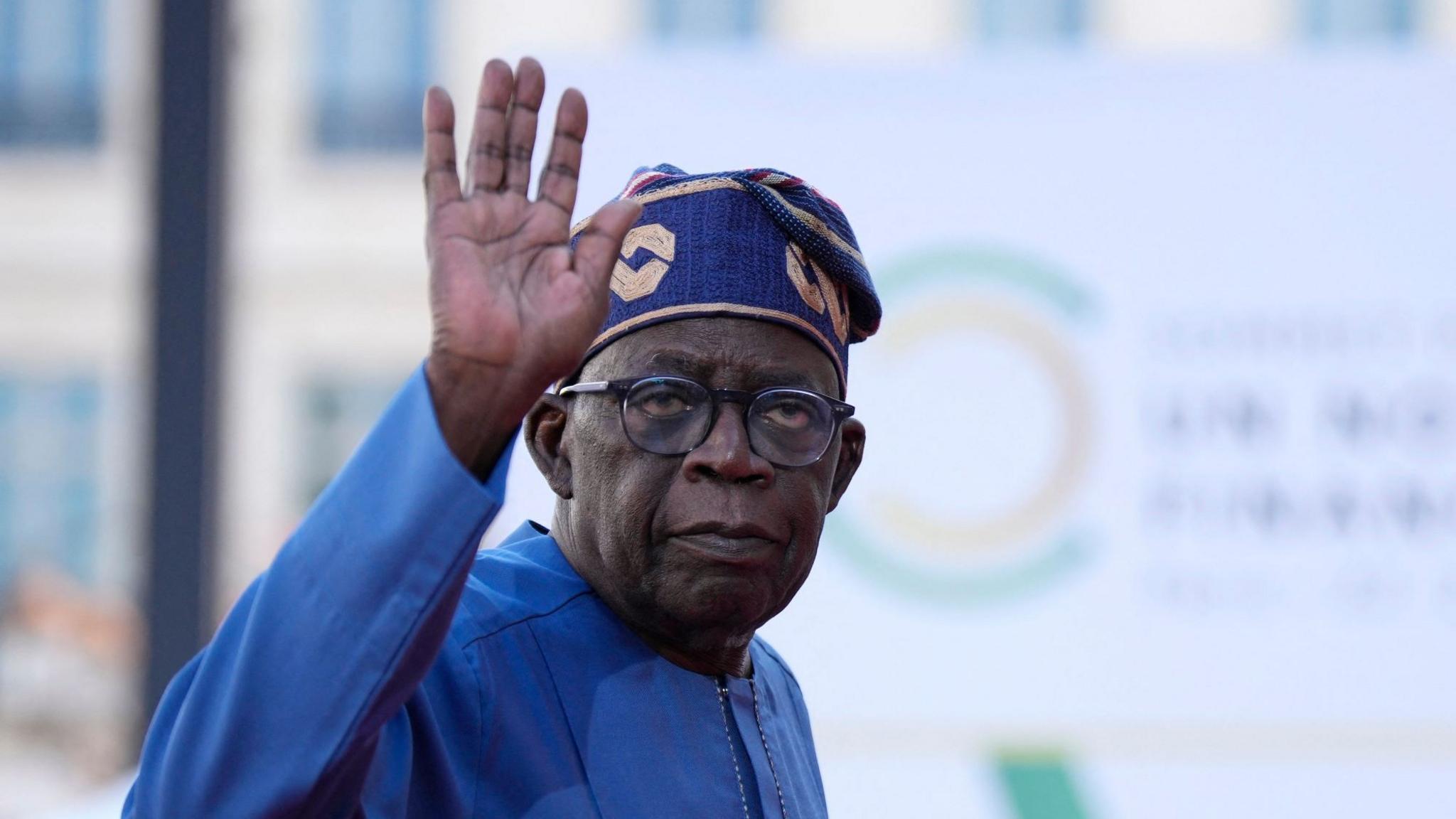The UK taxi driver still being paid as a Nigerian civil servant

- Published
If you leave your job, it would seem logical that your salary would stop being paid, but not so for a number of former Nigerian civil servants.
They have managed to be employed elsewhere - sometimes in another country entirely - and yet continue to receive a wage from their former workplace.
News of this has reached the top and last week President Bola Tinubu ordered a crackdown.
“The culprits must be made to refund the money they have fraudulently collected,” he said.
Sabitu Adams, whose name we have changed to protect his identity, has not resigned from his position as a junior official at a government agency and still gets paid each month, despite leaving Nigeria two years ago.
He now works as a taxi driver in the UK, but told the BBC that he was not worried about losing the salary as he sees Mr Tinubu’s comments as an empty threat.
Mr Adams added that the loss of his monthly Nigerian salary of 150,000 naira ($100; £80) would not be a great hardship, as he earns a lot more driving a taxi.
“When I heard about the president's directive, I smiled because I know I am doing better here - and not worried,” the 36-year-old said.
But why not make it clear to the civil service that he had left?
“To be honest I didn’t resign because I wanted to leave that door open in case I choose to go back to my job after a few years.”

Nigeria's President Bola Tinubu ordered a crackdown into those getting paid in the civil service for doing no work
Like Mr Adams, more than 3.6 million Nigerians have relocated to other countries over the last two years, according to official statistics.
Many young Nigerians see little prospect of earning a good living in the country - a feeling exacerbated by the collapse in the value of the naira over the past year following the reforms introduced by Mr Tinubu since he became president.
It has become so common for young people to seek their fortunes outside the country, the term “japa” has been coined to describe the phenomenon.
It is a word from the Yoruba language meaning to escape or flee.
Mr Tinubu said he was "struck by the revelations the head of the civil service shared regarding employees who had relocated abroad while drawing salaries without formally resigning".
The president said that not only should the money be repaid but those who were complicit in allowing it to happened should be investigated too.
“Their supervisors and department heads must also be punished for aiding and abetting the fraud under their watch,” he said.
And this may have been the case for Mr Adams.
The UK-based taxi driver admitted that he continued to be paid thanks to those in his department: “I had a good understanding with my boss and he just let me leave."
Often in such cases the salary is divided between the supervisor who keeps quiet and the person being paid, maybe along with an HR representative.
But for Mr Adams it was even easier. "In my case it wasn’t like that as my boss was a relative."

The collapse in the value of the naira over the past year is pushing more young Nigerians to seek opportunities elsewhere
So-called "ghost-working" is a major problem in Nigeria. Despite several crackdowns it is believed that thousands of non-existent workers are still being paid. There appear to be very few checks and balances in place.
But this is the first time it has been suggested that people who have moved abroad are continuing to be paid their salaries on a large scale.
Auwal Yakasai, who retired as a director in charge of finance at Kano state's information ministry in 2021, said he had heard of such cases.
''To be honest I have never caught anyone red-handed,” Mr Yakasai, who worked for the government for 32 years, told the BBC.
“But I have heard numerous stories of such arrangements, where someone would still be receiving [a] salary after relocating or changing their place of work.”
Since he took office in May last year, Mr Tinubu has pledged to reduce the cost of governance and cut wastage.
In January, he directed that all official entourages to state and international events for himself and other government officials be slashed by 60%.
Nonetheless some have noted that there is much talk in Mr Tinubu’s administration without much action.
They cite plans to buy new planes worth millions of dollars for Mr Tinubu and his deputy Kashim Shettima as an example.
Another was when Mr Tinubu earlier this month launched a new official residence for Vice-President Shettima in the capital, Abuja, with a price tag of $13.6m (£11m).
And despite the president's statement about the foreign ghost-workers, he did not say exactly what he was doing to crack down on them and take action against those responsible.
More BBC stories from Nigeria:

Go to BBCAfrica.com, external for more news from the African continent.
Follow us on Twitter @BBCAfrica, external, on Facebook at BBC Africa, external or on Instagram at bbcafrica, external